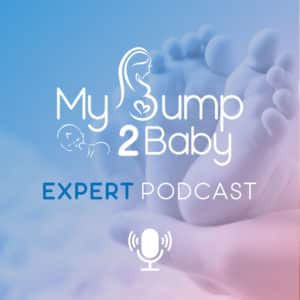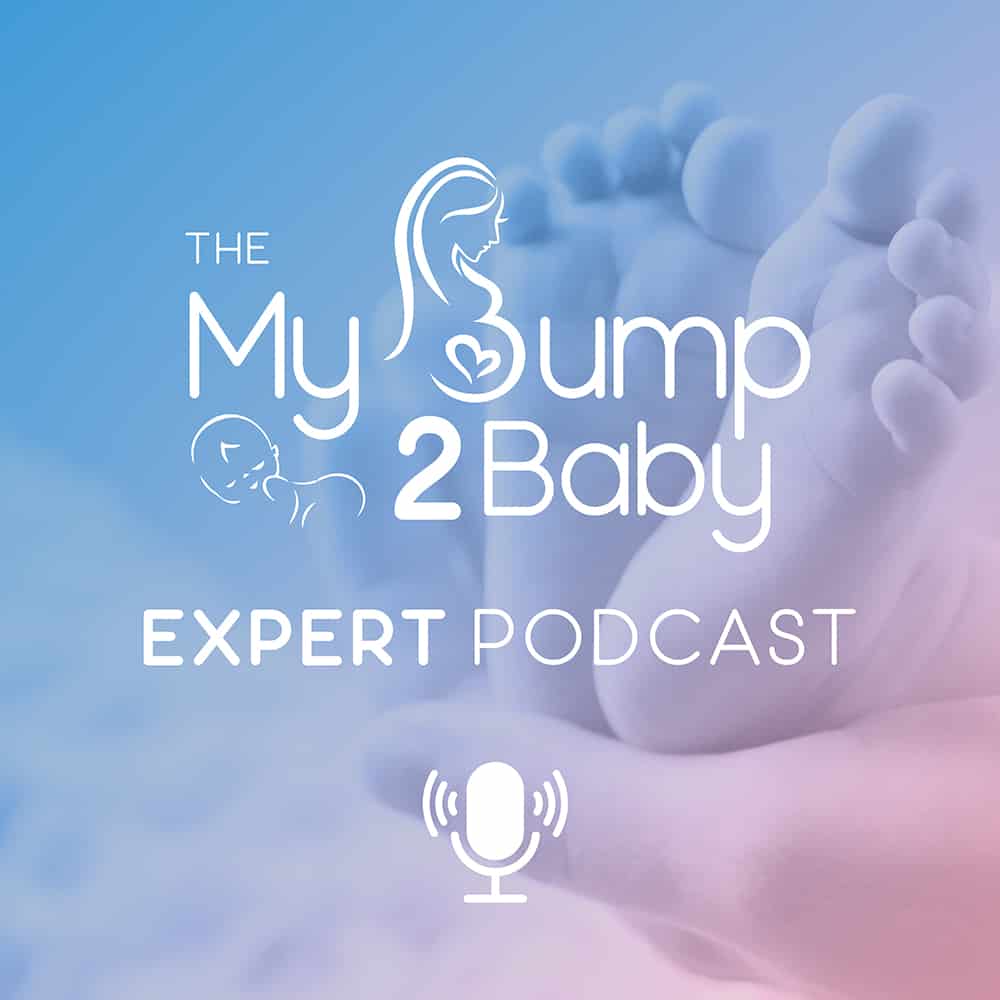- Mapping Your Financial Path with Tom Islip & Chris McGarvey
FREEBIE INCENTIVE: Book your Protection Review https://digital.mybump2baby.com/family-protection-incentive
Grow your business here – https://digital.mybump2baby.com/MyBump2Baby-Digital-Marketing-Academy
For Investments, Pensions & Mortgages- Tom 07946742984
For Protection Services – 07930633602
https://uk.trustpilot.com/review/harvestassociates.co.uk
Website: https://www.harvestassociates.co.uk/
Summary
Tom Islip and Chris McGarvey from Harvest Associates discuss the importance of financial planning and protection for parents. They explain that financial advice is not just for the wealthy and that everyone’s financial needs are different. They highlight the need for tailored advice throughout different life stages, such as buying a house, having children, and planning for retirement. They emphasize the importance of protection, including life insurance and income protection, to ensure financial security in case of illness or death. They also discuss the benefits of pensions and how they can help parents and business owners save for the future. They advise against relying on online platforms for financial advice and highlight the advantages of working with an independent financial advisor.
Carla (00:02.235)
Hello everybody and welcome to My Bumped Babies Expert Podcast. Today I am delighted to be joined by the lovely Tom Ilsep and Chris McGarvey from Harvest Associates. Hello guys, how are you?
Tom Islip (00:16.704)
Very well, Carly, yeah, how are you?
Carla (00:18.971)
I’m very well, thank you. Very well, working from home today, so yeah, nice bit of change. But are you guys working from home?
Tom Islip (00:29.6)
You work from home full time, don’t you?
Chris (00:32.338)
I think predominantly, all the times if you see two little strange creatures behind me it’s one of the dogs and I can only apologise for that.
Carla (00:37.211)
Oh no, I love dogs. Oh bless. Yeah, no, that’s great. So today we’re going to be talking a little bit about mapping out your financial path. But before we get onto that, would you mind just introducing yourselves and sharing a little bit more about how you can help our audience of parents?
Tom Islip (00:39.552)
Yeah.
Tom Islip (00:57.408)
Yeah, so myself and Chris were financial advisors, so I guess to summarize a bit about what we do, I guess the best way of looking at it is…
to think of a timeline, sort of visualise a timeline starting from a younger age when you might buy your first house. So I think at that point you might need advice regarding a mortgage, you know, unless you’re fortunate enough to sort of have the cash to buy it outright, you know, you will probably need to borrow.
moving through the timeline, you’ll probably get a little bit older, start to perhaps have children, and then the journey might sort of delve away from mortgages, but more into protecting your income. And then, again, as you get older, you tend to have a greater earning power, so you might be fortunate enough to have some savings. You might need to put some money aside.
side sort of in a pension and all these products sort of bolt on throughout that timeline as you get older and the advice journey changes. So I guess as a financial advisor we work with you know a variety of people all different backgrounds different demographics and not everyone is sort of your high -flying you know wealthy individual that you typically expect. We work with you know
all different types of people depending on what their requirements and needs are.
Carla (02:39.579)
That’s great because I think that that’s something that a lot of people might think that, oh, I have to have loads of money to see a financial advisor. But it’s not necessarily like that, is it? It’s like everyone, everyone listen. Yeah, it’s not. And everyone listening to this podcast will have financial needs, but they’ll all be very different. And that’s what I love about you guys is you kind of can tailor your your advisor and things around people’s circumstances rather than.
Tom Islip (02:47.552)
Yeah.
Tom Islip (02:51.424)
It’s not the case. Yeah.
Carla (03:09.083)
Hello, because years ago, I think this is years ago, people used to just go to a financial advisor and you’d expect them to just be like, right, this for you, this for you. But it’s not like that anymore. It’s about tailored advice and working with you throughout life’s journey, isn’t it? Because everyone’s circumstances change.
Tom Islip (03:26.24)
Yeah, I think as well, I think, you know, the world has changed now and…
We might not necessarily walk into a bank like we used to say 20 years ago when banks were all over the high street. A lot of business now it’s channeled through intermediaries, through brokers who sort of act as a middleman and work for a number of banks rather than just one bank. And the idea is it drives competition but also it allows us to, I guess, support our clients.
clients with products that they might not necessarily have been able to access had they gone direct to their bank. So yeah, there’s really a wide scope of individuals that we deal with.
Carla (04:18.907)
Great, that’s really good. So with, obviously you’ve covered why someone might need financial advice, but just a bit more on that. So can you help people right from getting their first mortgage right the way up to investing for their children? Do you deal with all of that side of things?
Tom Islip (04:37.76)
Yeah, I guess…
I’ve touched on a few such as buying a house, but any significant life event. So you have children, you can save into ICES that are designed for children. Even a child that’s just been born can have their own pension and you might not think about that. But I guess the scope of services that we do have, it’s very sort of wide range. And I guess the best way to do that is to
benefit of coming through Harvest Associates here. So we wouldn’t charge parents or any client on their initial consultation and it might sort of unearth a number of topics or a number of shortfalls really that’s currently sort of in place. And then it might prompt us to take action from those points. So going back to your question, I think…
You’ve got to think of specific life events, buying a house, having kids, starting a new job, thinking about retirement, that sort of stuff. They’re the key prompts, I would say, to encourage someone to act on needing some advice.
Carla (05:56.283)
Yeah that’s really useful because as well there’s a lot of mums that listen to this podcast as well and
You know a lot of moms that have been in corporate jobs for a very long time and then they’ve had children and they might not have gone back to work or they might start their own business and you can forget about those pensions and before you know it you get into that age where you’re thinking actually I’ve not got that long left and you think Where is my pension? So it’s just about protecting yourself and making sure that you’ve got the best for your future really and that you can enjoy retirement Because it goes fast doesn’t it? That’s what they say not at that point yet might look like it but
Tom Islip (06:17.664)
Yeah.
Tom Islip (06:26.368)
Yeah, absolutely.
Tom Islip (06:32.288)
Yeah.
Carla (06:32.781)
So, so, um, why, I guess my question for you guys is, not why so much, but protection for families. That’s another subject that we’re really, really passionate about at My Bumped Baby. And everyone’s different, aren’t they, with the different types of protection that someone might need. So could you cover a few different areas of protection and the ways that you can help?
parents with that because sometimes you might just see it as right yeah if I die they all get that money but it’s not necessarily just that is it you can help in lots of different ways.
Chris (07:06.194)
Yeah, I mean, you’re exactly right. Protection is what I’ve prominentl… Well, for most of my career I’ve dealt with. I look after the protection team here at Harvest. I think the first thing to say is, I think the cornerstone of any good protection advice should be offering an individual peace of mind, whatever that looks like. So for a parent, usually peace of mind would be knowing that no matter what happens, your kids are going to be okay and that they’re going to be provided for if your worst case no longer around or if you can’t support them anymore.
financially and as Tom said everyone’s needs can vary massively everyone’s circumstances vary massively from one household to the next but the kind of easiest way to to start and to know where to start looking I guess is to ask yourself okay could my kids cope financially if something happened to me that’s that’s the first question you should be asking yourself and could we still provide for the kids if we became ill or too able to work and earn our income?
Could I cope financially without my partner or could they cope without me? Or would my family be able to handle my debts, my mortgages, my liabilities without me? So those are the sort of key questions to ask yourself in the background. And that’s, I guess, a good way to identify whether or not you need to be having a conversation with someone about protection or whether you generally have a gap or a need there that could be resolved by taking out a protection policy.
Carla (08:32.827)
Yeah, sorry, sorry, just when you said that, Chris, I was just thinking, I know a lot of people think, oh, but my job, you know, I’ve got death in service, but a lot of the time they actually, if you are ill, you actually can lose your job long before that time comes. So it’s not necessarily.
Chris (08:49.394)
you’d exactly right
Carla (08:51.003)
Yeah, it’s not necessarily a good way to kind of just think, right, it’s all right, I’ve got death in service because if you’re terminally ill for a long time, you won’t be working at that company anymore. Fortunately, that’s the way it happens.
Chris (08:55.986)
No.
Chris (09:01.426)
You’re exactly right. And look, if you’ve got debt and service and sick pay benefits to your employer, that’s great. That’s never going to be a negative thing, right? Everyone wants as much as they can get. It’s nice to have, but you can’t rely on them. Because, I mean, first and foremost, your employer can take that away at whatever point they see fit. If something changes, you have to make cuts. It’s an easy thing for them to remove as a benefit. I think, go on other days where you used to work for your employer, and then if you were off sick, you’d just get paid until you come back again.
doesn’t really happen anymore. It would be great if it did but I think an important thing to remember when you’re taking out or when you’re engaging in a protection conversation is that having some cover is better than not having any cover regardless of how little or how much that is. And an important thing particularly for new parents I would say that might be keeping an eye on things like the purse strings and so on.
It doesn’t need to cost an arm and a leg. I mean, you can spend as little or as much as you can afford or as you want to. But as Tom said, our job as financial advisors is to make sure that what we give you advice on matches your needs and your own circumstances. And if you can look at the questions like, could my kids cope, could I cope, have we got peace of mind, and if you can say yes to that, then you’ve got the right cover in place and you can sort of rest easy.
Carla (10:22.587)
Yeah, that leads me on to something else actually that I want to discuss is the negatives of people going online and just getting the cheapest possible protection. I mean, we’ve seen it, you know, first hand where people think they’re covered, they’re paying for the privilege, but they’re not actually covered for what they think they’re covered for, which is why it’s really important to speak to you guys really, who can look over that small print and actually say, yes, you’re covered for this, this, this, and, you know, rather than someone kind of rushing through.
picking the cheapest and actually it’s even worse than not having it you’re paying for something that probably won’t pay out anyway
Chris (10:56.21)
Yeah, you’re absolutely spot on. And look, we get that.
Tom Islip (10:58.432)
I think a lot of… Sorry Chris, you go.
Chris (11:02.578)
Yeah, we get that. Look, the convenience of going online and just thinking you’re taking care of something in 15 minutes. I mean, you feel like you want to watch, don’t you? It’s easy and it’s quick and it looks convenient. But yeah, even having, I mean, I like to call it an MOT of your circumstances with a financial advisor. Just say, look, Tom, Chris, can you have a look at this for me? Can you tell me if it does what I think it does? That’s a vital bit of advice you can give to someone. I mean, we get clients that come to us and say, yeah, I’ve got life and critical illness cover.
and we’ll have a look at it and actually they don’t have critical illness cover, they’ve got terminal illness cover which is completely different and it’s very easy to get lost in jargon and shortcut industry terms when you go online and do something directly yourself.
Carla (11:47.387)
And I think people think of death, don’t they? And think, right, yeah, I’ve got life insurance, but actually you’re more likely to get critically ill and you only have to look at the news all the time. I mean, as I’m getting older, I’m looking, I’m seeing people my age, like, you know, who I went to school with and things like that, like getting cancer. And then you see, you know, they’re having to create go -fummy pages and, you know, and it’s so sad because if they had have just been…
you know, maybe better informed or just understood insurance a little bit more, they’d see the benefit, you know. People insure the mobiles, the cars, I know obviously with your car you don’t have a choice, but mobile phones and all of that and it’s like, but you’re the most, you know, for your children anyway, you know, the fact you’re not insured is scary how many people are walking around without that.
Chris (12:19.122)
Yep. No exactly.
Tom Islip (12:37.152)
I think as well, treatments are getting better, aren’t they? So you can now live with cancer, which, you know, that’s the problem, isn’t it? It’s being able to sustain the quality of life that you want to live, even if you are ill. And as you say, I think the majority of us at some stage, we are going to suffer from some form of illness, aren’t we? So it does pay to take our bias and yeah, get some coverate.
Carla (12:43.483)
Hmm.
Carla (13:06.811)
Yeah, and these policies where they pay out when you are terminally ill, again, if you’re looking for the best treatment, and if you’re at that point where you’re just desperate to be around for your kids longer, all of that is so, so important because…
Chris (13:23.986)
Absolutely.
Carla (13:24.539)
You know, health, you can’t buy health obviously, but then at the same time, you know, if you can kind of go to the best places for the best support, you know, it really hopefully would change things and give you more time with your family and all of that side of things as well.
Chris (13:43.634)
I think the most natural thing in the world is to assume that you’re immortal. No one ever thinks something’s going to happen to them or they’re going to get ill or they’re going to be too sick to work. But if you look at stats and so on, if you look at reports and so on, one in two of us are going to get cancer and life sounds horrendous and it is horrendous, but taking care of things, it all goes back to that peace of mind for me. If you’ve got that at least financial peace of mind, it’s such a weight off your shoulders. If you get sick or you get ill,
The very last thing you want to worry about is money on top of recovering and so on.
Carla (14:18.907)
Yeah, and for a lot of mums listening as well, you know, you might think, oh, well, I’m at home with the kids at the moment, so if I got ill, you know…
would be okay kind of thing because you can’t afford to do that but then you’ve got to think the other way around if your partner got ill and they were going out to work every day and they couldn’t you know could you afford the mortgage on your own and not only that god forbid something happened to that partner could you give your son or your daughter the same life so they’re not losing everything because it’s bad enough losing a parent but then oh you can’t go swimming anymore or you can’t do this anymore we have to move house it’s got a huge impact on a child.
Chris (14:54.706)
Yeah.
Carla (14:57.821)
losing a parent alone but to actually not be able to do the things that they enjoy anymore as well is heartbreaking.
Chris (15:02.418)
Exactly that, yeah, yeah. And that’s for me, I mean, one particular type of cover that’s commonly and vastly overlooked is income protection. Not to be confused with PPI or payment protection, the thing that you’ve seen in headlines years and years ago, but income protection is something that’s specifically designed to give you a monthly benefit if you become too sick to work or if you can’t work anymore through any type of incapacity or accident and so on. And that for me is a vital thing. If you look at…
42 % of adults believe they could survive a month or less based on the savings. Having an income protection plan or a sick pay protection plan there, you’ve got that peace of mind, look if you can’t work we can still cope, we can still take the kids swimming, we can still eat, we can still keep our head above the water.
Carla (15:49.947)
and you can still have nice times, you know, because if you do kind of get ill like that, you want to make nice memories, don’t you? So, you know, it’s all of that side of things as well. You don’t want to be adding to that awful stress of being ill and then not being able to do anything either, or not even being able to put the heating on. I mean, it’s scary, isn’t it? How much it can impact your life, not just from one side, but from everything.
Chris (15:52.05)
Exactly that.
Chris (15:57.778)
Totally. Yep.
Chris (16:08.914)
sure.
Tom Islip (16:09.344)
Yeah.
Tom Islip (16:16.32)
Yeah, definitely.
Chris (16:17.746)
Absolutely.
Carla (16:19.355)
So the doom and gloom bit, I know that is a bit, but it is so important, isn’t it? And at the end of the day, that’s what we’re really passionate about because unless you know, unless you know, you don’t know, you know, like so parents, new parents might not even know about protection and how important it is. So I’m glad we’ve managed to cover that within this podcast as well.
Tom Islip (16:38.208)
Oh
Carla (16:40.059)
Aside from that then, also pensions, I know that’s something that you guys can help with as well. Could you tell us a little bit more about what a pension is, if that’s okay? And also how it works for parents and business owners, because there’s benefits for business owners having a pension as well, if that’s okay?
Tom Islip (16:58.624)
Yeah, there are, yeah. So a pension is a best way to look at it. It’s a lifelong savings plan. So there’s a phenomenon called compound interest, which you may or may not have heard of, but I think it was Albert Einstein. He once said that compound interest was the eighth wonder of the world. So he kind of, you know, put it on its pedestal, but that’s the idea that the earlier you start saving,
you know, interest gains interest. So the earlier you can put money aside…
the more sort of accumulation you’re going to get in your pension pot. So, you know, the one thing I would say, it’s never too early to start saving in a pension. You get tax relief. So if you’re a company director, the company gets 25 % tax relief on contributions that it would make. So Carla, that, you know, apply to you. If your company that you owned was putting money,
into your pension, you get 25 % corporation tax relief. So, you know, you could kind of look at sort of the tax money is also contributing to your savings pot, which is ultimately helping it grow. And there are rules around pensions, which I think it’s probably one of the reasons why younger people do neglect it because they kind of think, well, I’m not going to be able to use the money until I’m, you know, mid 50s or in my 60s. It’s a lot.
long time away, let’s just sort of park it over there and not think about it. But the sorry thing is now, I think there’s also probably a perception in the UK that the state will help. And the fact of the matter is now there’s pensioners that have suffered in the last few years because of cost of living pressures that we’ve touched on already with heating bills going up and rent going up and food. And the state pension really, it’s only going to give
Tom Islip (19:05.058)
you a basic standard of living in retirement. So you’re not going to be able to go on holiday if you do want to do that. You’re not going to be able to take the grandkids to theme parks and stuff like that, which I think everyone would aspire to in our younger age. That’s where we want to get to. And…
you know, what’s happening now, I think the cost of living pressures and also the increased tax burden, it’s making it harder for pensioners to, you know, to live a reasonable standard of life. So…
A couple of things I think it’d be relevant for your listeners. A pension, what it can do, if you make pension contributions, it can reduce your taxable earnings. So there’s actually, there’s a couple of tax traps that are relevant for parents. So a lot of the listeners will claim child benefit. So child benefit is something that you can claim if mum and dad have earnings.
under £50 ,000 and it starts to taper. So by the time you get to £60 ,000, the child benefit is gone, you have to pay it back. Now this has recently changed, so the government have increased the limit to £60 ,000 and by the time it’s £80 ,000, that’s when again you wouldn’t be able to claim on child benefit. So if you have parents that are sort of on the borderline of that, they can make a pension contribution to return
use their taxable earnings below that threshold and then they can still claim child benefit. So technically, you know, it’s tax efficient to do that and you will be financially better off. You’ll have more money in your pocket and in your pension, say for later life. There’s also another tax trap as well. So if any parents are on the verge of earning a hundred thousand, what happens at a hundred thousand?
Tom Islip (21:13.506)
If your taxable earnings are above that, you’re unable to claim childcare. So for two year olds now, two year olds can claim 15 hours, three and four year olds can claim up to 30 hours. So again, if your earnings are above a hundred thousand, that benefit is taken away from you. And you also start to use your personal allowance. Your personal allowance is essentially, it’s a tax banding way.
it allows you to earn money without paying tax on it. So effectively your rate of tax, if you’re earning above 100 ,000, it increases to 60 or even higher than that if you have children that are in childcare as well. So again, that’s another reason really where parents can make pension contributions to try and support their wider living.
arrangements and obviously try to maximise their earning potential. But again, I’d encourage your listeners if they have any questions about it, you know, just speak to an advisor regarding it and they’ll be able to help.
Carla (22:26.715)
That’s great, that’s brilliant. Gosh, we’ve covered a lot there. Is there anything else that you think we should mention on this podcast? Obviously we want to hear about what you guys do and obviously all the different ways that you can help and how people can get in touch. But is there anything else that you want to talk about while we’re on this podcast around finances?
Chris (22:47.73)
I think again I would just go back to the I guess the importance of using a financial advisor like Harvest. I mean the advantages you’ve got rather than walking straight into a bank and getting offered a product from the bank. You’ve got I think the luxury of dealing with someone that’s got access to hundreds of different products. Someone’s going to be unbiased, someone that’s going to be batting for you, working for you rather than working for the lender or working for the insurer.
A quick example of that is when you go to certain advisors or banks and you take out a bog standard life insurance plan you might be paying £30 or £40 a month of that but what a lot of these companies do is they load their premiums and that’s how they make their money and make their living. Companies like us don’t do that at all. If you take out an insurance plan with us it’s the same as it costs by going straight to the provider but you’ve got that added benefit of actually
using my knowledge, using us as whole of the market, unbiased free advice for that type of thing. So get someone that just battles for you, wants to get to know you and wants to give you the solution that you need rather than walk into a branch and just get something that’s offered to you and leave thinking you’ve ticked something off the list when reality is you probably haven’t.
Carla (24:07.579)
Yeah, I love that. That’s so true. When I used to work in banking years ago, it was very much like a numbers kind of thing, a different kind of mentality. Whereas when you work with someone like you guys, you’re not, you know, parents, you’re not a number, you’re a person with different needs. And, and you know, you guys can definitely help with all of that. So it’s amazing. So thank you so much for that. Is there anything you want to add Tom?
Tom Islip (24:31.648)
That’s okay. No, I think, you know, the independence is…
Carla (24:33.755)
Is there anything you guys want to add?
Tom Islip (24:38.048)
particularly key for ourselves. I mean, I touch on the initial consultation. So most financial advisors, they will come out and see you and they won’t charge you initially for that initial consultation. That’s certainly in place here. And I kind of think at our office, we have around 50 advisors that work for Harvest. We don’t claim to be experts on every single piece of financial advice because, you know, we’ve
touched on a couple of areas here as you can imagine it’s so vast but I think amongst our office amongst the 50 advisors we will have somebody that would claim to be an expert in each individual field so again we have the benefit of communicating across our business and it helps to solve problems that you know individuals, mums and dads might come across so that’s the only thing I would say you know speaking on behalf of Harvest.
Carla (25:38.875)
And also, I know we touched on, it’s just come to mind, children’s pensions and things like that. A lot of people don’t realise about the children’s pensions and, you know, there are ways to invest for your child, not just in the pension, but you can invest into maybe the high school in the future, like you want to send them to private school or something. There are those ways that you can invest as well, aren’t there?
Tom Islip (25:48.896)
Mmm.
Tom Islip (25:57.248)
Yeah.
Tom Islip (26:01.216)
Yeah, there are. So again, the most tax efficient and easy way of doing it is through a junior ISA. So it’s similar to an ISA. You can put £9 ,000 away at the minute and it’s a tax wrapper in ISA. So all the gains, you know, the dividends that are paid into it, they’re tax free and they’re kept within that wrapper. So, you know, if you are thinking of setting a savings plan up for your children, a junior ISA is the best way.
easiest way of doing that and loads of providers will be able to do that for you.
Carla (26:39.771)
So guys, will you just share a little bit more about where people can find you and I will put the links to your business underneath this podcast as well for anyone that wants to get in touch.
Tom Islip (26:50.848)
Yeah, 100%. So again, we’ve not touched on it. We’ve been here for around 20 years now. So we were set up in 2003. So we’ve grown as a company, you know, over the past 20 years. We have advisors throughout, you know, the nation. Chris is up in Scotland. He’s probably the furthest away, but our presence is centered around Yorkshire and Derbyshire. So, you know, our main office is in Barlborough, but we have advisors.
up in Leeds, Manchester, Derby, Sheffield, Chesterfield. So we do cover a lot of areas. So we’re always available, either on the phone via our website. Or one thing I would say, obviously we live in a world now, don’t we, where we have Microsoft Teams, Zoom, that sort of stuff. And more and more of our clients are open to having conversations with us, either online or over the phone. Because we live in a fast -paced world where things are
Carla (27:40.923)
yet.
Tom Islip (27:50.722)
move quickly don’t we so we’re happy to sort of tailor our you know arrangements to to our clients needs.
Chris (27:59.154)
Just to very quickly jump in on that again, I think something as sensitive as your finances, your personal world, you want to know that you’re in safe hands and you’re in good hands. Definitely feel free to have a look at Harvest Associates on Trustpilot and you’ll see what our clients have got to say from their own experiences, find your contact info and so on there as well.
Carla (28:21.627)
put the link to that at the bottom of this podcast so people can easily click to that as well if that’s okay. So what I’ll do is if you do want to get in touch with Chris or Tom I’ll drop their details below this podcast and you can contact them directly and I’ll also put the link to the Trustpilot as well if that’s okay.
Tom Islip (28:28.512)
That’s great.
Tom Islip (28:40.448)
Thank you.
Carla (28:40.955)
Is that all right then guys? Thank you so much. I’ve really enjoyed that chat. I love hearing about all the different stuff that you guys do and how much you can help people. So thank you so much.
Tom Islip (28:43.808)
Now, let’s.
Tom Islip (28:51.68)
Now, Bruce, thank you for the opportunity, yeah.
Chris (28:51.858)
Thanks for having us.
Carla (28:54.555)
Thank you.










